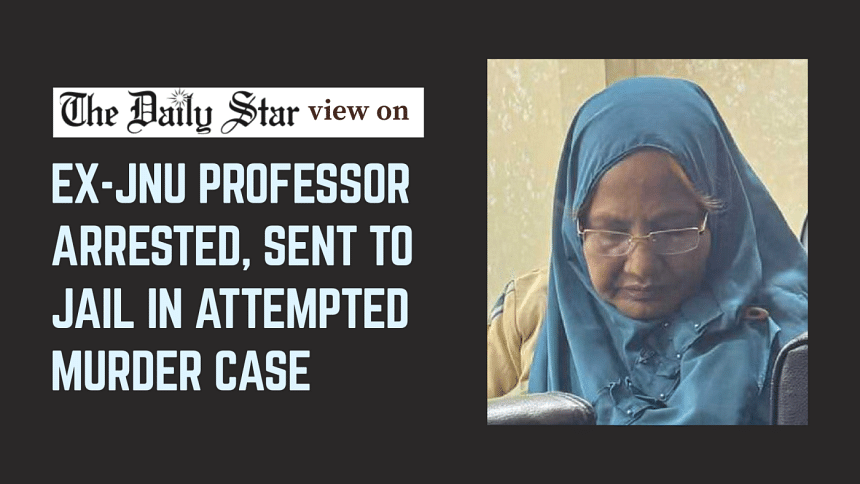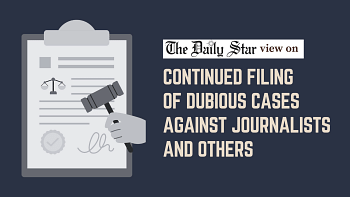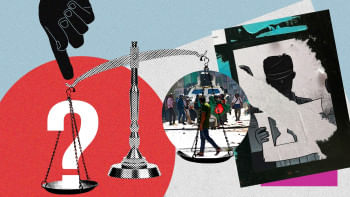Stop the state machinery quietly enabling dubious cases

It is deeply regrettable that even now—nearly 10 months since the August 5 political changeover—dubious cases filed in connection with the atrocities committed during the July uprising continue to make a mockery of our justice system. The latest victim to face the guillotine of such a case is SM Anowara Begum, a retired professor of Jagannath University (JnU) and a freedom fighter. Reportedly, Dr Anowara was sent to jail by a Dhaka court on Thursday, following her arrest the previous day. She, along with 192 others, faces the charge of attempted murder in a case filed by former JnU Chhatra Dal general secretary Sujon Molla, who was injured during clashes in July.
Filed about seven months after the incident, the case naturally raises questions about not only the motive behind its lodging but also the lack of credible evidence linking the accused to the alleged crime. In fact, all such cases can be distinguished by their mass listing of accused and the incredulous nature of the allegations themselves. And as we have argued before, the lumping together of those who aided or committed the July atrocities and those who merely extended moral support to the Awami League regime is not just legally tenuous; it also opens the door to exploitations, complicates the trial process, and invites question marks over the outcome of ongoing trials.
The current process for filing cases does not require police officers to verify claims at the outset, allowing anyone to lodge complaints. But officers were instructed not to arrest innocent individuals implicated in such cases. Why, then, did they arrest a 69-year-old struggling widow, who could not possibly have been involved in the crime she was accused of? Why did the investigation officer demand in court that she be denied bail, calling her a flight risk? Why did the magistrate concerned accept it and send her to the Kashimpur jail? And why could the home or law ministry not intervene over the two days when this saga played out?
The implication of Anowara, with no known history of violent activism, further reeks of personal/political vendetta as evidenced by the list of the accused, which includes, among others, 10 teachers and five officials from JnU itself. Only fair investigations may reveal whether their selection was random or carefully orchestrated to settle old scores. The question is, why do the police keep accepting or acting on cases that clearly exhibit such red flags?
We understand that the current process for filing cases does not require officers to verify claims at the outset, allowing anyone to lodge complaints. But officers were instructed not to arrest innocent individuals implicated in such cases. Why, then, did they arrest a 69-year-old struggling widow, who could not possibly have been involved in the crime she was accused of? Why did the investigation officer demand in court that she be denied bail, calling her a flight risk? Why did the magistrate concerned accept it and send her to the Kashimpur jail? And why could the home or law ministry not intervene over the two days when this saga played out? We cannot just blame the justice system, or those filing dubious and retaliatory cases, if the very people involved in the system keep failing to do their job properly.
We talk about these failures mostly when people of some repute are implicated in dubious cases. But what about the many ordinary citizens and professionals whose lives are being quietly ruined? All the talk of police and judicial reforms would be meaningless if such state-enabled injustices are allowed to persist unchecked. Reforms must begin with mechanisms to prevent and penalise the misuse of legal provisions, ensure accountability of police officers and magistrates, and guarantee that no citizen is denied justice or protection from legal harassment. The interim government can no longer look the other way.


 For all latest news, follow The Daily Star's Google News channel.
For all latest news, follow The Daily Star's Google News channel. 








Comments